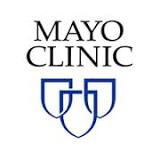Risk of Developing Antibodies to Heparin-PF4 After Heart Surgery
| Status: | Archived |
|---|---|
| Conditions: | Cardiology |
| Therapuetic Areas: | Cardiology / Vascular Diseases |
| Healthy: | No |
| Age Range: | Any |
| Updated: | 7/1/2011 |
The Incidence of Thromboembolic Events in Patients With Antibodies to Heparin-PF4 After Cardiac Bypass
Heparin is a drug that is widely used to prevent and treat blood clotting. Individuals
undergoing cardiopulmonary bypass surgery are administered high doses of heparin, and some
of them develop antibodies to the drug. This immune response can lead to the formation of
blood clots, setting the stage for a potential heart attack or stroke. The purpose of this
study is to evaluate how often an immune response to heparin leads to the formation of blood
clots in individuals who have had heart surgery.
Heparin is a drug that is widely used to prevent and treat blood clotting. However, heparin
can also cause serious adverse events. Individuals undergoing cardiopulmonary bypass surgery
are administered and therefore exposed to high doses of heparin. Studies have shown that up
to 61% of cardiac bypass patients develop elevated levels of antibodies to heparin-PF4 after
surgery. This immune response may activate blood platelets, possibly resulting in a blood
clot. These clots most often develop in the legs and lungs, and may lead to a heart attack
or stroke. The frequency of such a reaction has yet to be determined definitively. This
study will evaluate the incidence of an immune response to heparin-PF4 that leads to the
formation of blood clots in individuals who have had heart surgery.
Participants in this study will be recruited prior to a scheduled cardiac bypass surgery.
They will first complete a structured pre-operative interview to collect baseline measures
on demographics, comorbidities, history of heparin exposures, and prior thromboembolic
events. Immediately prior to surgery, a blood sample will be taken to assess the
individual's platelet count and level of antibodies to heparin-PF4. Following the operation,
participants will be followed daily to assess heparin exposure, platelet counts, and any
blood clotting. Subsequent blood samples will be taken 5 days and 1 month following the
surgery to again evaluate the individual's platelet count and level of heparin-PF4
antibodies. Additionally, participants will undergo a structured interview at 1 and 3 months
post-surgery to evaluate the incidence of outcomes related to heparin-PF4 antibodies.
We found this trial at
4
sites
University of Wisconsin-Madison In achievement and prestige, the University of Wisconsin-Madison has long been recognized...
Click here to add this to my saved trials
101 Manning Dr
Chapel Hill, North Carolina 27599
Chapel Hill, North Carolina 27599
(919) 966-4131

University of North Carolina Hospital at Chapel Hill The UNC Health Care System is a...
Click here to add this to my saved trials
Duke Univ Med Ctr As a world-class academic and health care system, Duke Medicine strives...
Click here to add this to my saved trials
Mayo Clinic College of Medicine Mayo Medical School enrolls a select class of 50 medical...
Click here to add this to my saved trials


